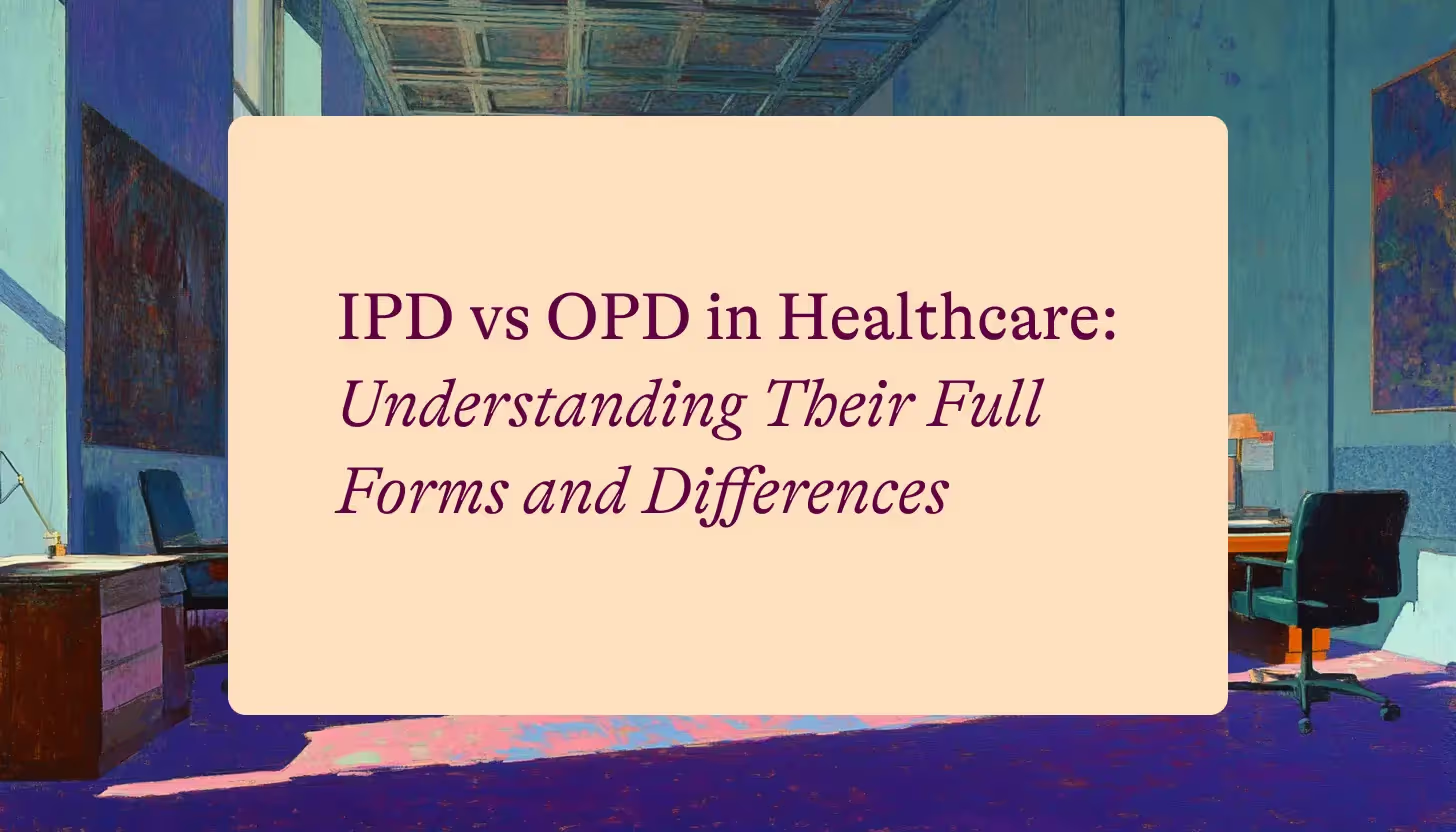Introduction to GIPSA
In the dynamic landscape of the insurance sector, the General Insurance Public Sector Association (GIPSA) plays a pivotal role in streamlining operations, setting standards, and fostering collaboration among public sector insurance companies in India. This blog delves into the genesis, structure, and functions of GIPSA, shedding light on its impact on policyholders and the insurance industry as a whole.
The Genesis of GIPSA
Established in 1964, GIPSA was formed as a conglomeration of four public sector insurance companies: National Insurance Company Ltd., New India Assurance Company Ltd., Oriental Insurance Company Ltd., and United India Insurance Company Ltd. This collaboration aimed to bring about cohesion and synergy in the functioning of these entities, with a focus on mutual growth and better service delivery.
GIPSA's Role in the Insurance Landscape
GIPSA acts as a forum for public sector insurers to collectively address industry challenges, share best practices, and ensure a unified approach towards policyholders. It serves as a regulatory body, facilitating coordination with government bodies and regulatory authorities.
Member Companies of GIPSA
The four major public sector insurance companies are the founding members of GIPSA. Their collaborative efforts under the GIPSA umbrella contribute to the standardization and improvement of insurance practices in the country.
The Organizational Structure of GIPSA
GIPSA operates with a well-defined organizational structure, comprising executives and representatives from each member company. This structure ensures effective decision-making, coordination, and implementation of initiatives.
Objectives and Functions of GIPSA
Standardising Health Insurance Practices: GIPSA endeavours to standardise health insurance practices, ensuring consistency in policy offerings, claim procedures, and customer service. This standardisation helps build trust among policyholders and enhances the overall credibility of the insurance industry.
Enhancing Customer Service and Settlements: One of GIPSA's primary objectives is to improve customer service experiences and expedite claim settlements. By establishing common guidelines and benchmarks, GIPSA aims to create a more customer-centric approach across member companies.
GIPSA's Impact on Policyholders
Streamlining the Claim Process: GIPSA's influence is prominently felt in the streamlining of the claim process. Standardized procedures and documentation requirements lead to a more efficient and transparent claims settlement process for policyholders.
The Network of GIPSA-Approved Hospitals: GIPSA collaborates with healthcare providers to create a network of hospitals where policyholders can avail cashless services. This network ensures quick access to medical facilities and a hassle-free experience during emergencies.
GIPSA and its Regulatory Environment
Compliance and Guidelines: GIPSA operates within a regulatory framework, adhering to guidelines set by regulatory bodies. Compliance ensures that the association functions ethically and transparently, maintaining the integrity of the insurance sector.
Coordination with Regulatory Bodies: GIPSA actively collaborates with regulatory bodies to contribute to policy development and regulatory reforms. This coordination helps align the association's objectives with the broader regulatory landscape.
The Claim Settlement Procedure Under GIPSA
Initiating a Claim: Policyholders initiate the claim process by contacting the insurance company and providing necessary details. GIPSA's standardised procedures ensure a consistent and straightforward initiation process.
Documentation and Verification Process: GIPSA mandates specific documentation requirements and verification processes to validate claims. This stringent yet standardised approach minimises discrepancies and expedites the settlement process.
GIPSA's Role in Fraud Prevention
Monitoring and Investigative Framework: GIPSA employs a robust framework for monitoring and investigating fraudulent activities. The association collaborates with law enforcement agencies to identify and address instances of insurance fraud effectively.
Impact on Insurance Fraud Dynamics: The proactive approach of GIPSA in fraud prevention contributes to the overall reduction of fraudulent claims, safeguarding the interests of both insurers and genuine policyholders.
The Benefits of GIPSA for Insurers
Cost Regulation and Tariff Advantages: GIPSA facilitates cost regulation and tariff advantages for insurers, ensuring a level playing field and preventing unhealthy competition. This benefit allows insurers to operate sustainably while offering competitive premiums.
Collaborative Risk Management: Member companies pool their resources and expertise through GIPSA, fostering collaborative risk management practices. This collective approach enables insurers to mitigate risks more effectively and enhance the resilience of the industry.
Challenges and Criticisms of GIPSA
Limitations in Scope and Reach: Some critics argue that GIPSA's influence is limited to public sector insurers, potentially excluding private players from benefiting from its initiatives. Addressing these limitations is crucial for GIPSA to have a more comprehensive impact.
The Debate on Competition and Consumer Choice: The debate on whether GIPSA's efforts stifle competition and limit consumer choice is ongoing. Striking the right balance between standardisation and healthy competition remains a challenge for the association.
Success Stories and Learning Curves
Exploring case studies highlights GIPSA's successful interventions, showcasing instances where the association's initiatives have positively impacted policyholders and insurers alike. Examining learning curves provides insights for continuous improvement.
The Future of GIPSA
Technological Integration and Expansion Plans: GIPSA's future involves embracing technological advancements to enhance operational efficiency and customer experience. Expansion plans may involve collaborations with international entities, bringing a global perspective to the association's initiatives.
Predictions for Policy Development: As the insurance landscape evolves, GIPSA is poised to play a key role in shaping policy development. Predictions for future policies reflect the association's commitment to staying ahead of industry trends and adapting to changing consumer needs.
Conclusion: The Evolving Role of GIPSA in Health Insurance
In conclusion, GIPSA continues to evolve as a crucial player in the health insurance sector, influencing positive change in policy standards, customer service, and fraud prevention. As it navigates the challenges and embraces opportunities, GIPSA remains committed to enhancing the overall health of the insurance industry for the benefit of both insurers and policyholders.
FAQs on GIPSA
Q. What is GIPSA, and how does it differ from individual insurance companies?
GIPSA, or the General Insurance Public Sector Association, is a collaborative association formed by four major public sector insurance companies in India. Unlike individual insurance companies, GIPSA acts as a collective forum to standardise practices, enhance customer service, and streamline the insurance landscape. It promotes collaboration among member companies while setting guidelines for industry-wide improvement.
Q. How does GIPSA benefit policyholders in the claim settlement process?
GIPSA significantly impacts policyholders by streamlining the claim settlement process. Through standardised procedures and documentation, GIPSA ensures a transparent and efficient experience for policyholders. Additionally, the association's network of approved hospitals facilitates cashless services, making medical assistance more accessible during emergencies.
Q. Does GIPSA only cater to public sector insurers, or can private insurance companies participate?
As of now, GIPSA primarily consists of public sector insurance companies. However, discussions on expanding collaboration to include private insurers are ongoing. While GIPSA's current focus is on standardising practices within the public sector, future developments may involve broader industry participation for a more inclusive impact.
Q. How does GIPSA ensure the quality and accessibility of its network of approved hospitals for policyholders?
GIPSA regularly reviews and audits its network of hospitals to ensure they meet stringent quality and service standards. This process includes verifying medical facilities, staff qualifications, and patient care services. By doing so, GIPSA aims to guarantee that policyholders receive high-quality, accessible healthcare services.
Q. What specific technological advancements is GIPSA planning to embrace to enhance operational efficiency and customer experience?
GIPSA plans to integrate advanced technologies like artificial intelligence for claims processing and blockchain for secure data management. These technologies aim to streamline operations and enhance customer experience by ensuring faster claim settlements and maintaining transparency and security in transactions.
Q. How are private insurance companies responding to GIPSA's standards and practices, and is there any collaboration between public and private sectors facilitated by GIPSA?
Private insurance companies closely observe GIPSA's standards and practices, adopting similar measures to ensure competitiveness and compliance with industry benchmarks. While direct collaboration between public and private sectors through GIPSA is limited, the association's initiatives indirectly influence the wider industry, prompting private insurers to align with best practices and regulatory standards.
.avif)










.avif)














